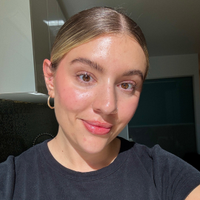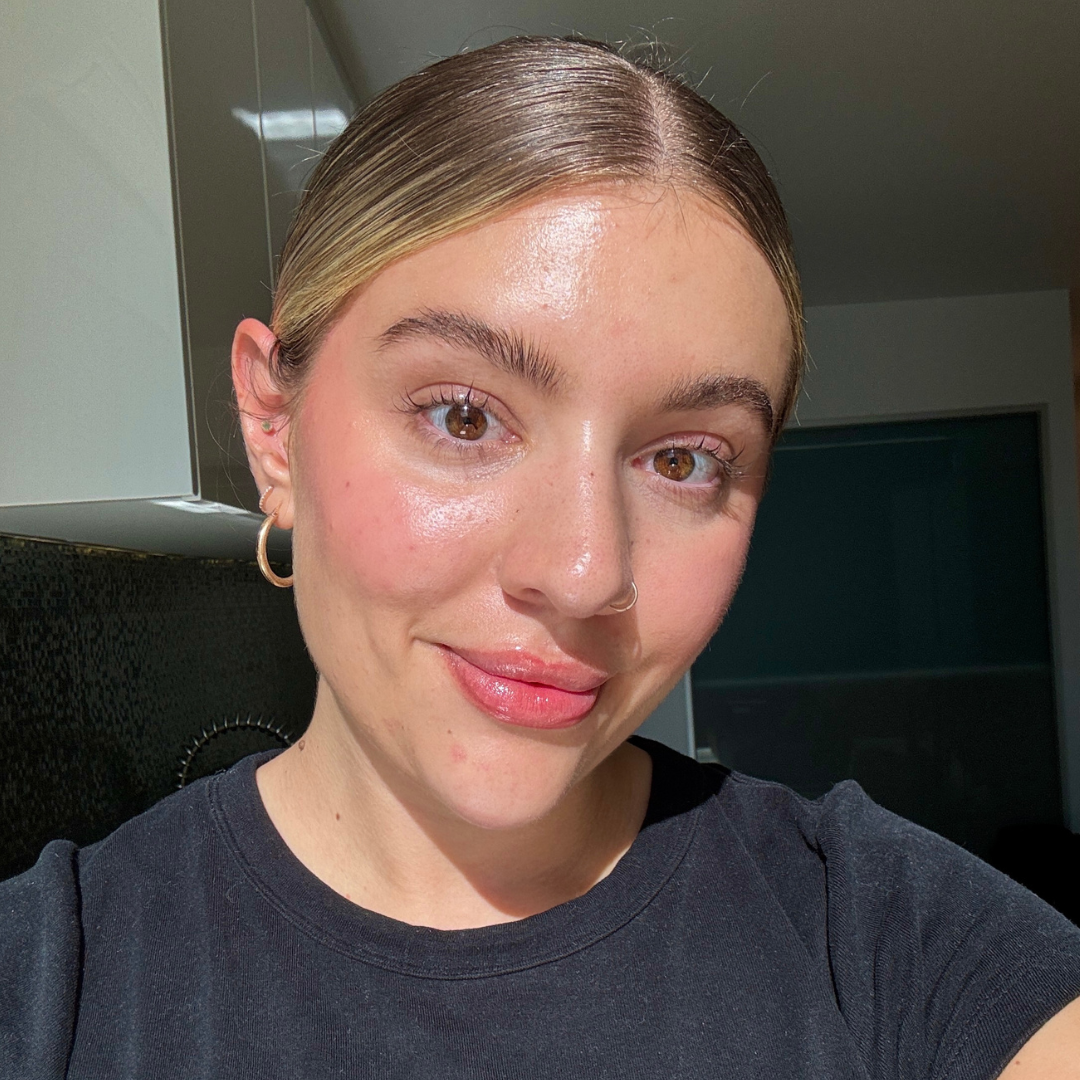I’m not ready to dissolve my lip filler but I support those who are—here's what to know about the process
Is everyone getting their filler dissolved without me? Here's the information if you *have* changed your mind


Celebrity news, beauty, fashion advice, and fascinating features, delivered straight to your inbox!
You are now subscribed
Your newsletter sign-up was successful
In my early twenties, I was always fairly confident in the way I looked. However, I'd been self conscious about my upper lip for as long as I can remember. I'd been blessed with a full lower lip, but the top one just never seemed to match. Much thinner, the two felt like very distant cousins who rarely conversed.
For this reason, getting filler has given me so, so much confidence at 32 years old. I now feel a little more in proportion, and like my mouth area so much more that it is now one of my favourite parts of my body. I love wearing lipsticks, lip glosses and lip oils now, too, which as a beauty editor is a lovely added plus.

In recent years, however, I feel as though there's been a major backlash against filler—and I do completely understand it. The 'Love Island effect' has meant that young women who have barely entered adulthood believe they should get filler to meet societal expectations—those being bigger, plumper pouts. The pressure to do so for much younger, more impressionable minds definitely grinds on me, but I think it's a shame that this has meant filler in general has been given a bad name.
Likewise, you see many examples on television and online of overfilled lips and filler migration; these results can often look unnatural and obvious, which also (somewhat understandably) tarnishes the idea of filler. Some reports have suggested that filler can even last in the lips or face for years and years, which again, has contributed to the growing fears around it.
This has ultimately led to a change in the way we view filler, along with its popularity. While still popular overall, the 'Age of Wellness Report’ conducted by DRG Global for leading RHA® aesthetic filler brand Teoxane revealed that lip filler isn’t actually the most in-demand dermal filler treatment for millennials now—it’s not even in the top three (these are treatments to treat fine lines and wrinkles, improve skin quality and brighten the under-eye area).
A post shared by Dr Alexis Granite (@dralexisgranite)
A photo posted by on
Again, I do understand how and why attitudes towards filler are changing, but I also think it's important to remind women that getting filler doesn't make you silly or superficial, it's nothing to be looked down on and if you want to get it done, go for it—just do so safely and with a qualified, experienced professional (but more on that later). Feminism is about choices; you should not feel pressure to seek aesthetic treatments to look a certain way, but you should also not be shamed or made to feel like less of a feminist if you choose to have them, or like me, refuse to get them dissolved because everyone else seems to be.
As mentioned, filler has helped with my confidence and (I believe) still looks natural on me—mostly because I have been seeing a qualified, competent (and just straight-up amazing) duo of doctors to administer these injections for three years now in both Dr Wassim and Dr Christine at the TakTouk clinic.
Celebrity news, beauty, fashion advice, and fascinating features, delivered straight to your inbox!
However, I know that not everyone has the same experience as mine. Due to a lack of regulations set on these kinds of treatments, things often go wrong when it comes to filler. Under-regulated and, arguably, under-qualified practitioners administering lip filler can lead to overfilled lips, upper-lip migration and even more harmful side effects. Whether it's for botched results or simply because you no longer feel aligned with your lip filler, having filler dissolved is always an option, and one that, again, should spark zero judgement (but also zero pressure).
For that reason, I spoke to the experts to find the answers to your most-asked questions about filler dissolving, in order to help you make a more informed decision. Remember that the most important factor in getting any aesthetic treatment done (or removed through techniques such as dissolving) is finding highly trained doctors who know what they're doing and will work with you to achieve the safest, most natural-looking results. Do your research online, read reviews and follow word-of-mouth recommendations.
What does it actually mean to 'dissolve' filler?
"Dissolving filler is a cosmetic procedure often performed to reverse the effects of dermal fillers," explains Dr Nina Bal, Cosmetic Dental Surgeon, Advanced Facial Aesthetics Clinician and Owner of Facial Sculpting. "The process involves injecting an enzyme called hyaluronidase, which breaks down the hyaluronic acid in the filler, allowing the body to naturally absorb it."
After a full consultation with your chosen doctor and the treatment being initially administered, Nicky Ruebsamen, Head of Injectable Growth ROI & UK at Thérapie Clinic, says: "You will likely see a noticeable reduction within just a few days, but the full dissolving process takes around two weeks. In some cases, multiple treatments may be needed to completely dissolve the filler. Hyalase is only effective on fillers made from hyaluronic acid [which most are]".
The reasons why people may choose to get their filler dissolved varies, say both experts. "Filler is most commonly dissolved when the aesthetic result is not as desired or if the filler has migrated to areas where it shouldn't be," says Nicky. "Additionally, as patients age, their aesthetic preferences may shift toward a more natural look."
Dr Nina adds: "Complications can also arise that may require the dissolving of filler, such as blocked blood vessels, which could lead to a risk of necrosis."
An injector may also recommend dissolving previous filler to achieve better results with a new treatment, reveals Nicky.
How much does it cost, and does it hurt?
Let's get into the nitty gritty details you need to know. First, the cost: unfortunately, having fillers removed isn't cheap, but then neither is the initial treatment. "The cost for dissolving filler typically ranges from £200-£400, depending upon various factors," explains Nicky.
In terms of the pain scale, you likely may have heard horror stories. Some say that dissolving filler has hurt even more than the initial injections, but it really relies on many factors, including individual pain thresholds and the experience of your doctor. "Some patients report some discomfort, but most find it to be a very tolerable pain. To minimise discomfort, a topical anaesthetic can be applied," says Dr Nina.
What should you do after you've had your filler dissolved?
As with any aesthetic treatment, you should take care to ensure you heal safely. Avoid applying any make-up to the area for at least 24 hours and keep the area clean.
In terms of downtime, you may experience some side effects. These include "mild swelling, bruising, or tenderness" which can usually be managed with over-the-counter pain relief and ice packs, explains Dr Nina. "A brief burning or tingling sensation may occur as the enzyme works but is typically short-lived," she adds. Remember, too, that there's a chance of lip wrinkling post-procedure, especially if you have had a lot of filler dissolved and thus, skin has stretched slightly.
"Most swelling subsides within three days, but it can take up to two weeks to see the final results," adds Nicky. After this, if the goal is to 'start again' with more natural-looking results, you can start to have conversations with your injector about new filler—but they will be able to judge if you need more time before this can happen.

Rebecca is a freelance beauty journalist and contributor to Marie Claire. She has written for titles including Refinery29, The Independent, Grazia, Coveteur, Dazed, Stylist, and Glamour. She is also a brand consultant and has worked with the likes of The Inkey List on campaign messaging and branded copy. She’s obsessed with skincare, nail art and fragrance, and outside of beauty, Rebecca likes to travel, watch true crime docs, pet sausage dogs and drink coffee. Rebecca is also passionate about American politics and mental health awareness.